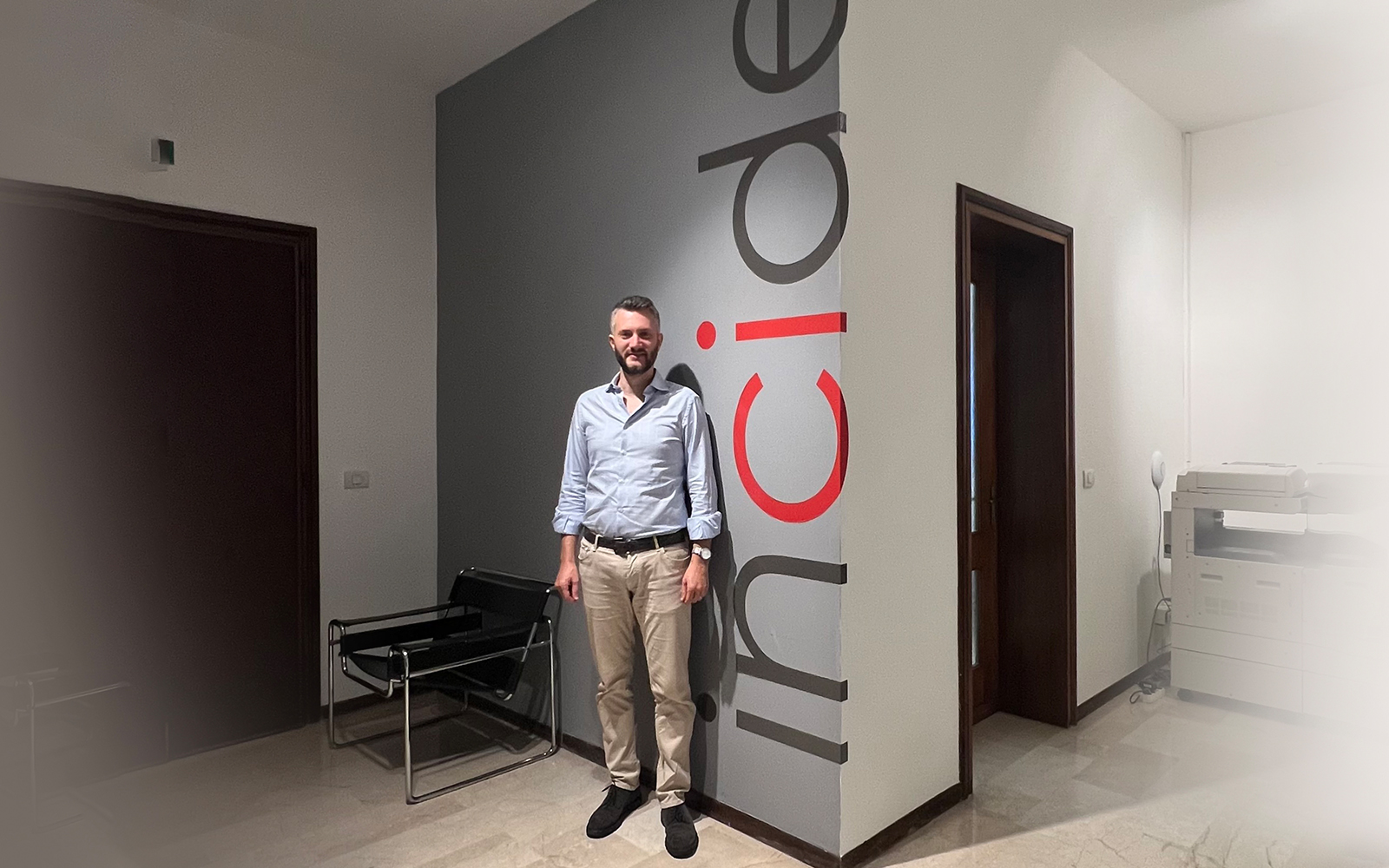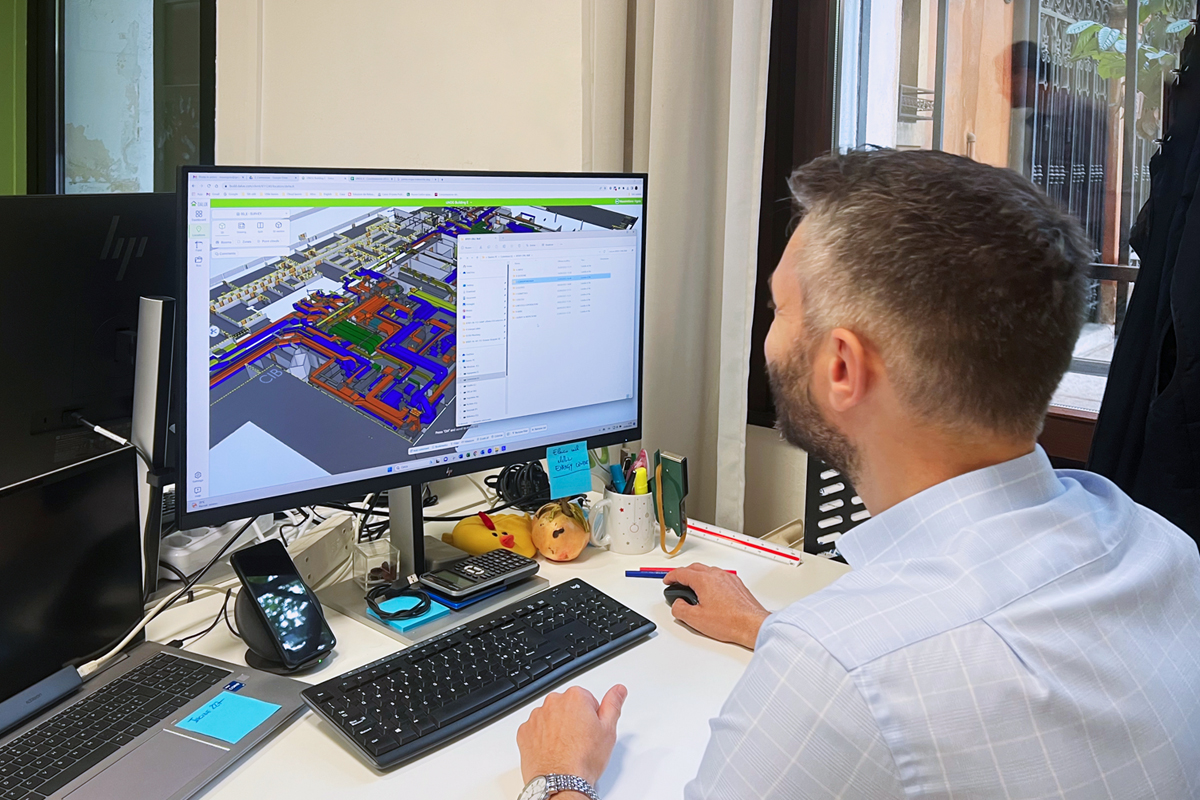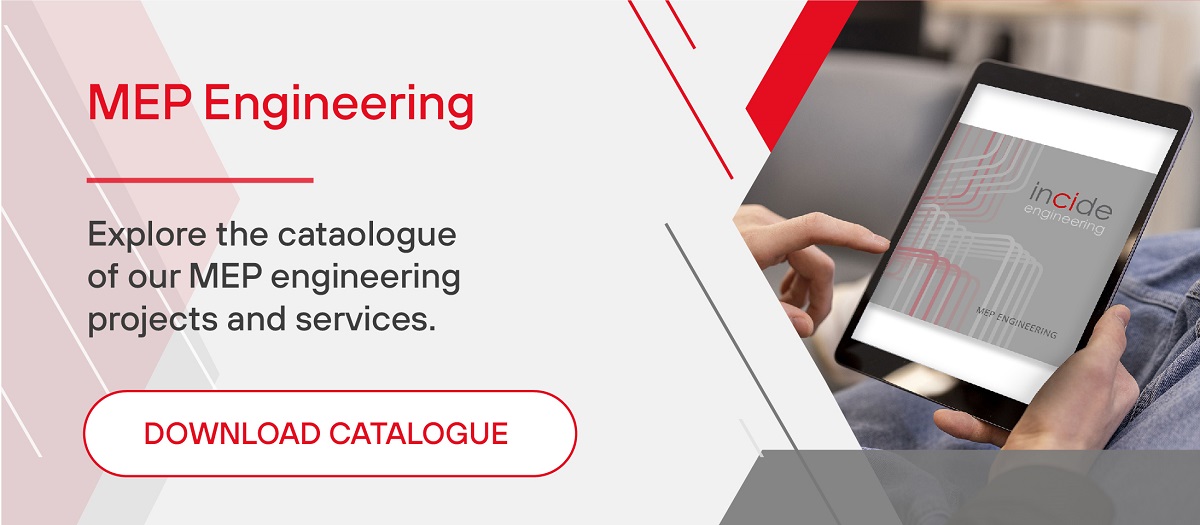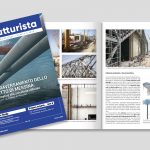A focus in plant and energy engineering with Massimiliano Vigolo, MEP engineer and project manager in Incide Engineering. His professional history grew out of family roots in the plumbing industry, fueling a growing passion for plant engineering. Through a path of study, research and professionalism, he has embraced challenges and innovations, becoming an expert in the field.
Learn about his journey, the prospects of the dynamic and ever-evolving world of plant engineering, news about MEP, and the benefits of BIM for plant design.
How did your journey begin and how did it continue?
It all started with the family business. My father had a plumbing business: hence my ever-growing passion for the world of plant engineering.
Would you like to tell us about your professional experience?
I have always been in the industry, starting from my high school studies at the University of Padua to the Polytechnic University of Milan, where I received my master’s degree in Energy Engineering with a focus on Civil and Industrial Thermotechnics. After a few years I continued my path as a research fellow at the Polytechnic and started my professional activity in some important plant engineering firms in Veneto.
In Incide Engineering I saw a young reality, very active both in Italy and abroad, with a strong will to expand in the plant engineering sector. I also sensed a determination to undertake new interesting projects for the future, developed in an innovative way, in addition to the important work already done in the field.
BIM: What’s the present of this design methodology and what are the advantages?
BIM is now inescapable: we need to push more and more in this direction to increase project quality and deliver an increasingly detailed engineering product.
What’s new in the field of power engineering and MEP?
The field of energy engineering is very dynamic: innovations and technologies are always in flux.
In particular, new European and international directives increasingly shift the focus of everyone-designers, manufacturers and installers-to conceive and implement efficient systems such as to reduce energy needs and ensure a high degree of sustainability, which the environment we live in increasingly needs and demands of us.
The greatest difficulty lies, therefore, in being constantly updated and proposing and designing innovative and cutting-edge systems with the technologies available on the market.
What challenges do you encounter most often during your work?
Adapting, settling or stopping in engineering will never lead to sustainable results. The main challenge is to come up with alternative, efficient and innovative solutions by putting them in simple and affordable contexts.
What’s the most important lesson you carry with you, encountered during your career so far?
Ours is a group work in which being able to listen and learn from all team members is not only strictly necessary, but also what is most challenging; valuing colleagues means creating a better product while growing professionally and humanely.




